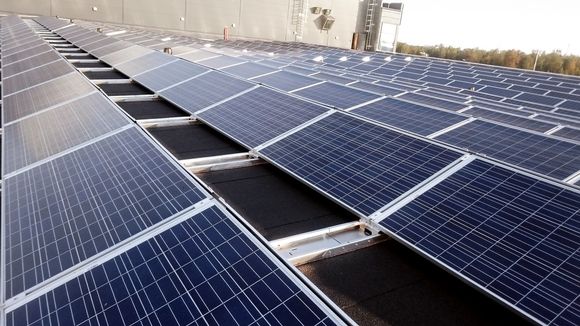Smart grid electrical systems – a new export jackpot for Finland?

Smart electricity systems can save consumers money while easing the transition to low-emission energy sources – and Finnish high-tech firms are ideally positioned to turn them into a major export product, experts say.
Finnish high-tech firms aim to turn smart energy technology into a major export product. A professor from the Lappeenranta University of Technology says Finland leads the way in automation that makes energy usage more efficient. This includes systems that heat various rooms of a home to just the right temperature according to usage and electricity availability, potentially saving homeowners significant amounts of money annually.
Professor Samuli Honkapuro, a specialist in electricity markets, says such smart electric systems are becoming more crucial with the rise of variable power sources such as wind and solar.
He says Finland has a competitive edge in this area as virtually all electricity users now have electric meters that can be tracked remotely, with the data used to maximise the efficiency of the electric grid.
“Unique in the world”
“This is unique in the world,” says Honkapuro, adding that smart grids will be essential for the climate-driven shift from fossil fuels to low-carbon renewables. This sea change will require the flexible flow of electricity in both directions. Homes and other buildings are moving from being simply consumers of electricity to being units that also produce and store energy and play a role in balancing out networks.
Honkapuro compares the situation to the early 1990s when Finland became the first country in the world to set up a national GSM mobile phone network. This in turn enabled Nokia’s rise to become the world’s leading phone manufacturer.
“The whole energy system is being overhauled. It’s the same kind of sweeping change as the shift from landline to mobile phones. Now we have the same kind of opportunity to develop a new industry and a significant export business,” Honkapuro tells Yle.
Growth platform for business
Smart electric meters facilitate automatic controls of electricity consumption. The need for electricity demand flexibility expands as more and more weather-dependant sources such as solar and wind are hooked up to the electric grid.
For households, automatic control and demand flexibility could mean nudging the heat down at moments of peak electric consumption, a form of so-called demand-side management.
The Espoo-based start-up Opti Automation has developed such a product, dubbed Optiwatti.
“It adjusts the temperature in each room of the customer’s building, which can cut annual heating costs by as much as 40 percent,” says co-founder and CEO Juha Marjeta.
The idea is to avoid overheating and to buy electricity from the grid when it is cheaper. While saving the customer money, it also allows the grid to shift consumption away from peak times.
“The main problem with electricity generation is not that we can’t produce enough of it – it’s that production is not at the right time,” notes Marjeta.
Baby steps
So far adoption of such systems is in its infancy. For instance Optiwatti has only been installed in about 300 houses. For the sake of comparison, 730,000 are now fitted with heat pumps. Meanwhile other Finnish companies also offer electricity consumption control systems, including Oulu’s Cleworks, Joensuu’s Kotivo and majority state-owned energy utility Fortum.
Opti Automation has 11 employees and plans to expand into the Scandinavian and Baltic markets, starting with Sweden this year.
“Our system can be used for cooling just as well for heating, anywhere in the world,” Marjeta explains.
Honkapuro says that Finland’s remotely-read electricity meters give companies a perfect springboard to try out systems in the domestic market before launching exports.
Besides start-ups, Finland already has plenty of established industry that is developing demand flexibility and smart network devices, programmes and services. These include multinational giants with operations in Finland, such as ABB, Schneider Electric, Siemens and CGI.
Demand should not be an issue for potential Finnish exports in this segment. Worldwide smart grid investments are projected to rise to some 80 billion dollars annually by 2020.
Altogether the International Energy Agency estimates that about 16,000 billion dollars will be invested electricity production between now and 2035.
Related stories from around the North:
Canada: Arctic community plugs in solar and star power in fight against climate change and seismic testing, Radio Canada International
Norway: Japan wants wind power from Arctic Norway, Barents Observer
Russia: No alternative to Arctic oil says Russia environment minister, Barents Observer
Sweden: Will Sweden be able to produce enough energy in the future?, Radio Sweden
United States: Despite winter darkness, solar power might work better in rural Alaska than you’d expect, Alaska Dispatch News



